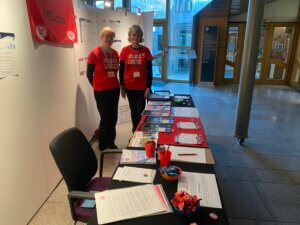Dr. Komaroff’s Webinar Provides His Hypothesis, Hot Research and Hope
Link to webinar: https://youtu.be/
by Darla N.
In a webinar the Solve ME/CFS Initiative hosted on Nov. 10, Dr. Anthony Komaroff presented his hypothesis on ME’s cause and five popular areas of current ME research. Komaroff, Simcox-Clifford-Higby professor of medicine at Harvard Medical School and senior physician at Brigham and Women’s Hospital, has published at least 240 articles and book chapters, many of them about ME.
He began by confirming there is research-based evidence of biological abnormalities in ME, referring to 2015 Institute of Medicine and 2014 National Institutes of Health reports. “This is not a primary psychological disorder,” he explained.
He hypothesizes ME’s cause is one of several infectious agents that leads to chronic, low-grade brain inflammation, influenced by immune system and gut function. “Several of the agents that have been shown to trigger ME/CFS cannot be fully eradicated by the immune system,” he said.
Komaroff also summarized concepts and findings from five research areas: brain, exercise and post-exertional malaise, immune system, energy metabolism, and epigenetics.
Brain and Exercise Research
Hundreds of studies examining ME patients’ brains have centered on neuroendocrine dysfunction, cognitive impairment not caused by psychiatric disorders, autonomic dysfunction, and “connectivity,” explained as activation in one region of the brain causing activation in another region. Brain abnormalities in ME have been captured using MRI, SPECT (which measures blood flow and metabolism), PET (which measures neuroinflammation), and EEG (which measures brain waves). Regarding connectivity, patients have a discoordination between brain regions that should display connectedness.
Recent research has also investigated the cause of post-exertional malaise. Relevant study findings reported during the IACFS/ME conference at the end of October included:
- exercising patients’ characteristic gene expression signature (by Stanford University)
- patients’ difficulty increasing their heart rate on the second consecutive day of exercise testing (by University of the Pacific)
- patients’ blood pressure falling after an exercise challenge (by Georgetown University)
- patients’ higher lactate levels on the second consecutive day of exercise testing when controls’ levels were lower (by Ithaca College and University of Oslo)
Immune System, Energy Metabolism, and Epigenetics Research
Komaroff explained there are immune system abnormalities in ME: cytoxic T cells, poorly functioning natural killer cells, activation of the 2-5A system, and increased production of pro-inflammatory cytokines. One 2015 study by Hornig et al. studied cytokine levels in short-term and long-term ME patients. They found 28 cytokines were at higher-than-normal levels in short-term patients but slightly depressed in long-term patients.
On top of immune system impairment, recent research also indicates impaired cell energy production. Studies reported at the IACFS/ME conference found a specific enzyme connected to energy metabolism deficit in patients (University of Bergen) and found that patients’ peripheral white blood cells produce energy less effectively than those of controls (Newcastle University).
Komaroff defined the final area of research, epigenetics, as the study of normal genes being turned on and off. When this happens at incorrect times, disease can result. Two epigenetic mechanisms involved in ME are microRNAs and abnormalities in gene methylation, which were not explained further.
He concluded by reiterating his hypothesis, which “would unite a lot of the different abnormalities that have been reported in the literature.” Solve ME/CFS Initiative’s next webinar is Dec. 15.
Link to webinar: https://youtu.be/






1 thought on “Dr. Komaroff’s Webinar Provides Hypothesis, Hot Research and Hope”
These are fashionable ideas about ME/CFS and we need to get beyond fashionable ideas to a much more robust paradigm that will yield much better results for people with ME/CFS.
We should avoid poisonous enthusiasm for fashinable ideas about ME/CFS- for simply they arent doing much for people with ME/CFS- they do much more for researchers believing they are on the right track.
We need the equivalent of “blue ocean strategies” for ME/CFS combined with rapid evaluation cycles. Frankly Id rather these folks who research ME/CFS be much more dynamic and open to creating a new paradigm. The current paradigm, to me,is getting old fast.
Comments are closed.